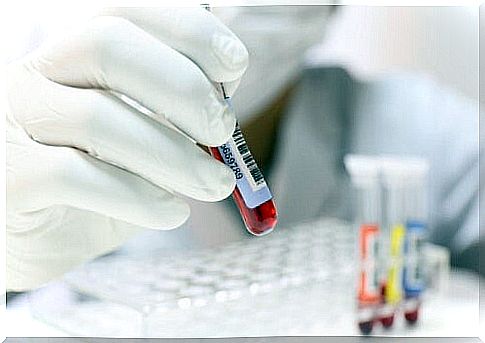How Long Has It Been Since You Did The Blood Test?

While many people feel that they don’t need to go for a blood test because they don’t have any health problems, that’s why they should do so. It is routinely recommended to have a regular blood test performed to detect anomalies early enough for treatment.
Certain components and parameters of our blood may show changes and abnormalities long before any symptoms appear. This gives a huge advantage in preventive treatment and allows you to avoid complications in the future.
When your doctor orders a routine blood test , he looks for signs of certain conditions that may be more common at a certain age. And if the patient already suffers from a chronic disease, routine analysis allows a specialist to monitor the development and effectiveness of the treatment used.
Blood therefore serves as a means of knowing the internal state of the body thanks to the quick results of the tests and their easy availability. Laboratories can be found virtually anywhere, the cost of most analyzes is bearable, and their usefulness is scientifically proven.
As a general rule, people who consider themselves healthy should have an annual blood test. On the other hand, in patients with chronic diseases it will be necessary to shorten this period, especially at the beginning of treatment.
What will the blood test tell us?
When we talk about blood tests, we mean performing biochemical tests on blood tissue. Blood is liquid body tissue that flows through the circulatory system, primarily through veins and arteries.
Although it is in a liquid form, blood is made up of two main groups of components:
- Solids: The solids of blood are also known as solids. Here we can list red blood cells, white blood cells and platelets.
- Liquids: The liquid part of the blood is in turn blood plasma or serum.

Some biochemical tests focus on a solid part of the blood and analyze their cells. For example, the indicator of red blood cells tells you how many of these cells are present in a certain amount of blood. The blood test also counts the number of white blood cells and the number of platelets.
As for solids, you can also analyze their shape by looking through a microscope. Red blood cells may be larger or smaller, have deformities, or have specific limitations that indicate the presence of certain diseases.
In the liquid part of blood or serum, the laboratory has infinite parameters to measure. The most common and routine test is blood sugar, creatinine, urea, uric acid, and plasma lipids. You can also measure the concentration of ions such as sodium, magnesium and potassium.
Serological tests are also important , during which the laboratory tries to detect the presence of infectious diseases or, indirectly, the presence of antibodies to these diseases.
What blood test is performed at each age?
There are specific blood tests for each stage of life that are considered routine for that age group. In other words, a specialist physician, based on the patient’s age, will refer him to the biochemical tests that are best suited for him.
These protocols have been established worldwide as well as nationally based on the most common diseases of all ages. It is assumed that when these measurements are performed on the whole population, most diseases that cause death or alter the quality of life will be detected at the appropriate time.
Tests performed between the ages of 20 and 35
While this is an age where we generally have fewer illnesses, annual screening is essential to prevent future complications. What is detected in advance will be easy to heal.
The laboratory procedure for this age group includes blood counts, kidney function, liver health, blood sugar and cholesterol profile – good cholesterol, bad cholesterol, and triglycerides.
Blood test for pregnant women
Pregnancy may occur in women during fertile age. This is a special situation that requires specific analyzes at the beginning of pregnancy and in each trimester of pregnancy.
Pregnancy control procedures require a woman to do a blood test at least once per trimester. These are for routine blood control but also to track infections that may affect the fetus, such as toxoplasmosis, syphilis, hepatitis B and AIDS.
From 35 to 55 years old
This age group needs to step up control because the incidence of chronic disease in the population increases after the age of 40. Blood tests in women are also combined with imaging tests such as mammography. Pathological anatomical tests such as cytological smears are also performed; and invasive tests such as colonoscopy.
Doctors usually add to their routine monitoring of hormonal changes, especially in women who enter the menopause.
Blood test for people over 60 years of age
In the elderly, the incidence of disease is much higher. Many people over the age of sixty already have a chronic disease and should repeat their blood tests before the end of the year.

To sum up
A blood test is part of the routine checkup of every healthy person. And if he suffers from some disease, there are much more reasons why it will be necessary to undergo a biochemical examination regularly. This keeps the disease under control and prevents its progression.
When carrying out a medical checkup, the specialist will know what blood test to order for the patient depending on their age and physical conditions. Remember that timely analysis can detect serious problems and avoid irreversible situations related to your health in the future.









